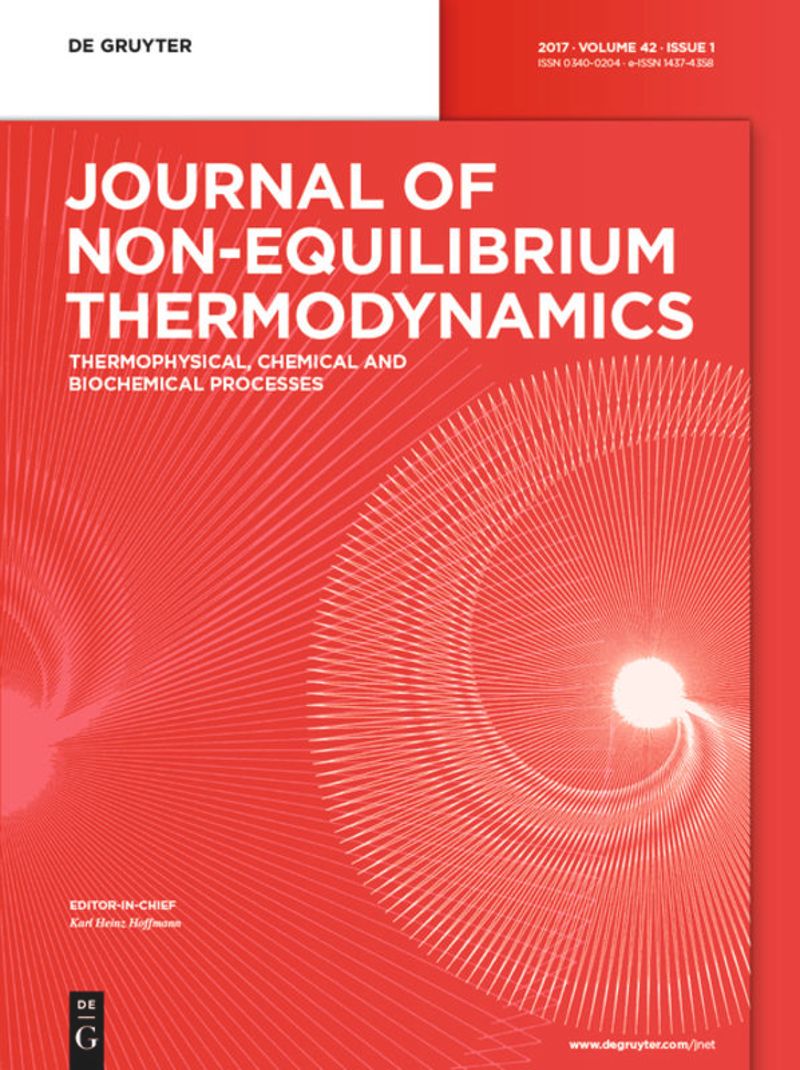具有高效功率函数的内可逆量子热机的优化分析
IF 4.2
3区 工程技术
Q1 MECHANICS
引用次数: 0
摘要
我们研究了一种内可逆量子点热力引擎的最佳性能,在这种引擎中,系统与浴槽之间的热量传递是由量子比特介导的,其运行条件是权衡目标函数,即由引擎功率与效率的乘积定义的最大有效功率函数。首先,我们对所考虑的发动机的高效功率函数的优化进行了数值研究。然后,我们通过应用高温限制获得了一些分析结果,并将发动机在最大有效功率函数下的性能与发动机在最大功率状态下的性能进行了比较。我们发现,在最大有效功率函数下运行的发动机至少能产生 88.89 % 的最大功率输出,同时还能大量减少因熵产生而造成的功率损失。最后,我们对发动机在最大功率和最大有效功率状态下的效率进行了随机模拟研究。我们发现,与在最大有效功率功能下运行的发动机相比,在最大功率下运行的发动机受到的功率波动更小。本文章由计算机程序翻译,如有差异,请以英文原文为准。
Optimization analysis of an endoreversible quantum heat engine with efficient power function
We study the optimal performance of an endoreversible quantum dot heat engine, in which the heat transfer between the system and baths is mediated by qubits, operating under the conditions of a trade-off objective function known as the maximum efficient power function defined by the product of power and efficiency of the engine. First, we numerically study the optimization of the efficient power function for the engine under consideration. Then, we obtain some analytic results by applying a high-temperature limit and compare the performance of the engine at maximum efficient power function to the engine operating in the maximum power regime. We find that the engine operating at maximum efficient power function produces at least 88.89 % of the maximum power output while at the same time reducing the power loss due to entropy production by a considerable amount. We conclude by studying the stochastic simulations of the efficiency of the engine in maximum power and maximum efficient power regime. We find that the engine operating at maximum power is subjected to fewer power fluctuations as compared to the one operating at maximum efficient power function.
求助全文
通过发布文献求助,成功后即可免费获取论文全文。
去求助
来源期刊
CiteScore
9.10
自引率
18.20%
发文量
31
审稿时长
1 months
期刊介绍:
The Journal of Non-Equilibrium Thermodynamics serves as an international publication organ for new ideas, insights and results on non-equilibrium phenomena in science, engineering and related natural systems. The central aim of the journal is to provide a bridge between science and engineering and to promote scientific exchange on a) newly observed non-equilibrium phenomena, b) analytic or numeric modeling for their interpretation, c) vanguard methods to describe non-equilibrium phenomena.
Contributions should – among others – present novel approaches to analyzing, modeling and optimizing processes of engineering relevance such as transport processes of mass, momentum and energy, separation of fluid phases, reproduction of living cells, or energy conversion. The journal is particularly interested in contributions which add to the basic understanding of non-equilibrium phenomena in science and engineering, with systems of interest ranging from the macro- to the nano-level.
The Journal of Non-Equilibrium Thermodynamics has recently expanded its scope to place new emphasis on theoretical and experimental investigations of non-equilibrium phenomena in thermophysical, chemical, biochemical and abstract model systems of engineering relevance. We are therefore pleased to invite submissions which present newly observed non-equilibrium phenomena, analytic or fuzzy models for their interpretation, or new methods for their description.

 求助内容:
求助内容: 应助结果提醒方式:
应助结果提醒方式:


